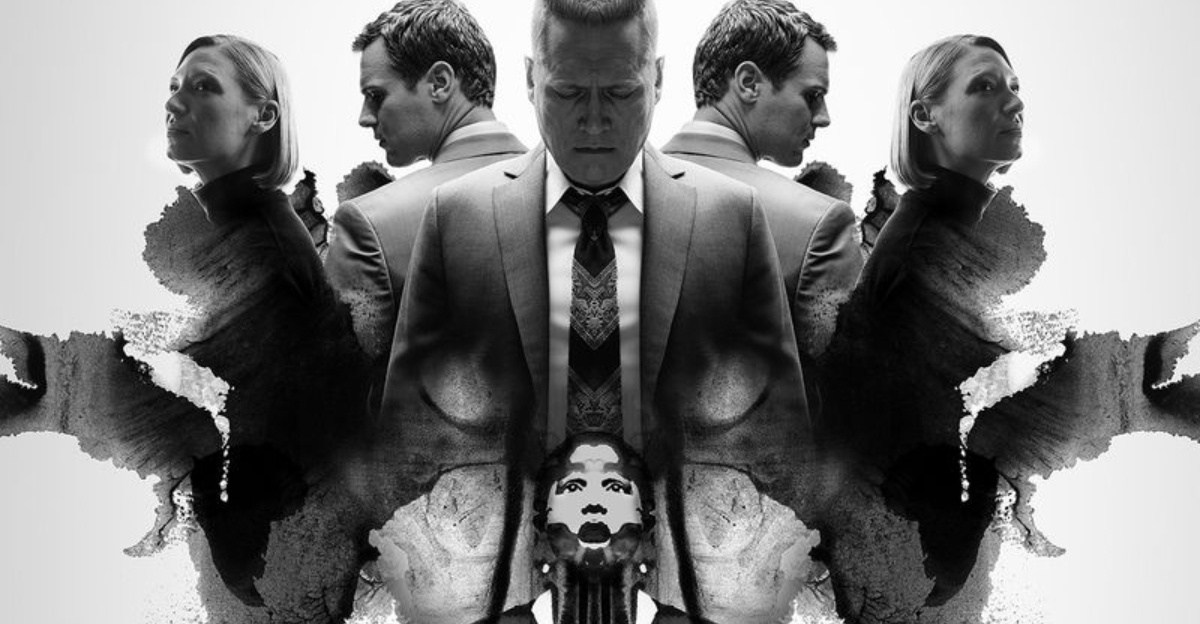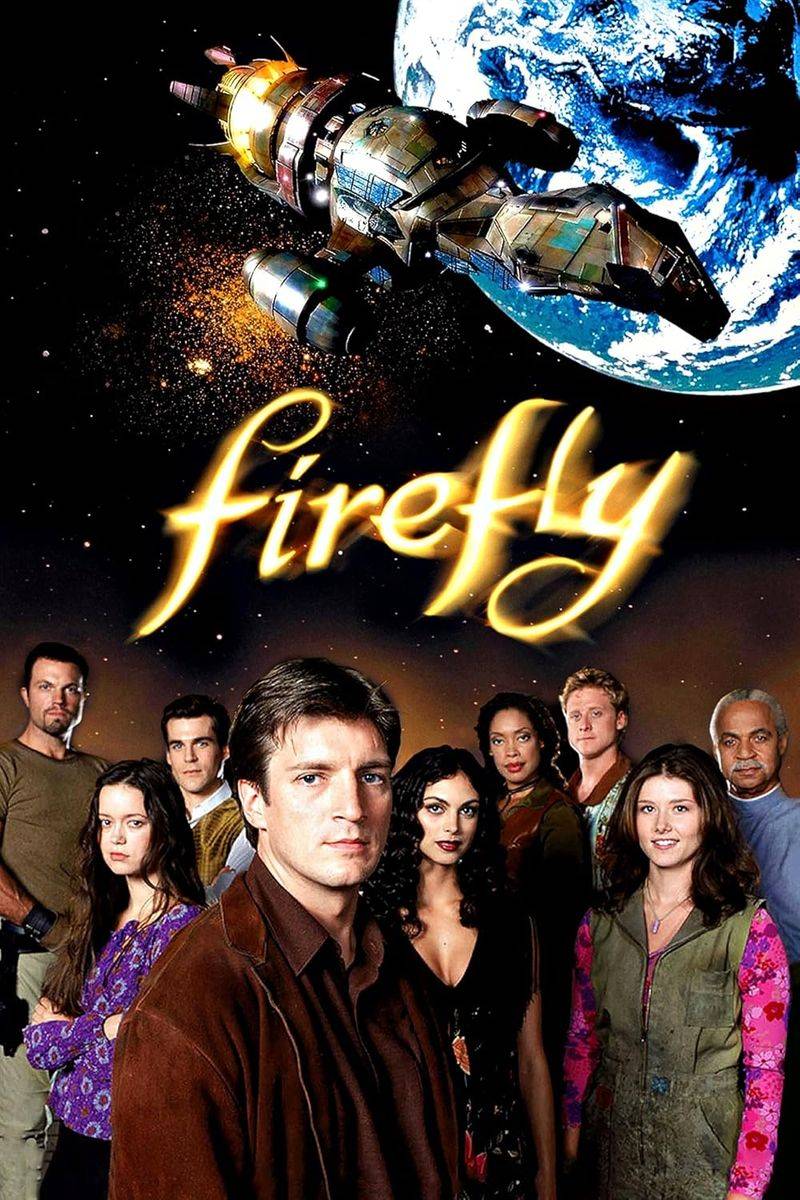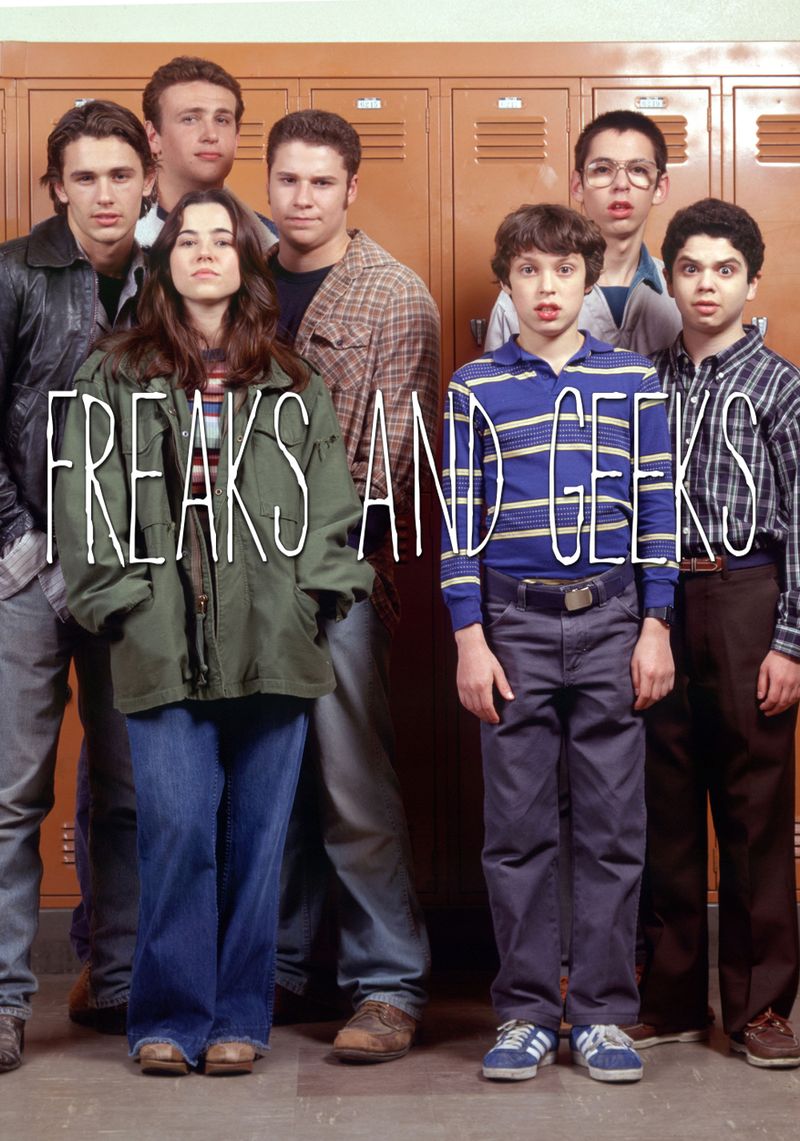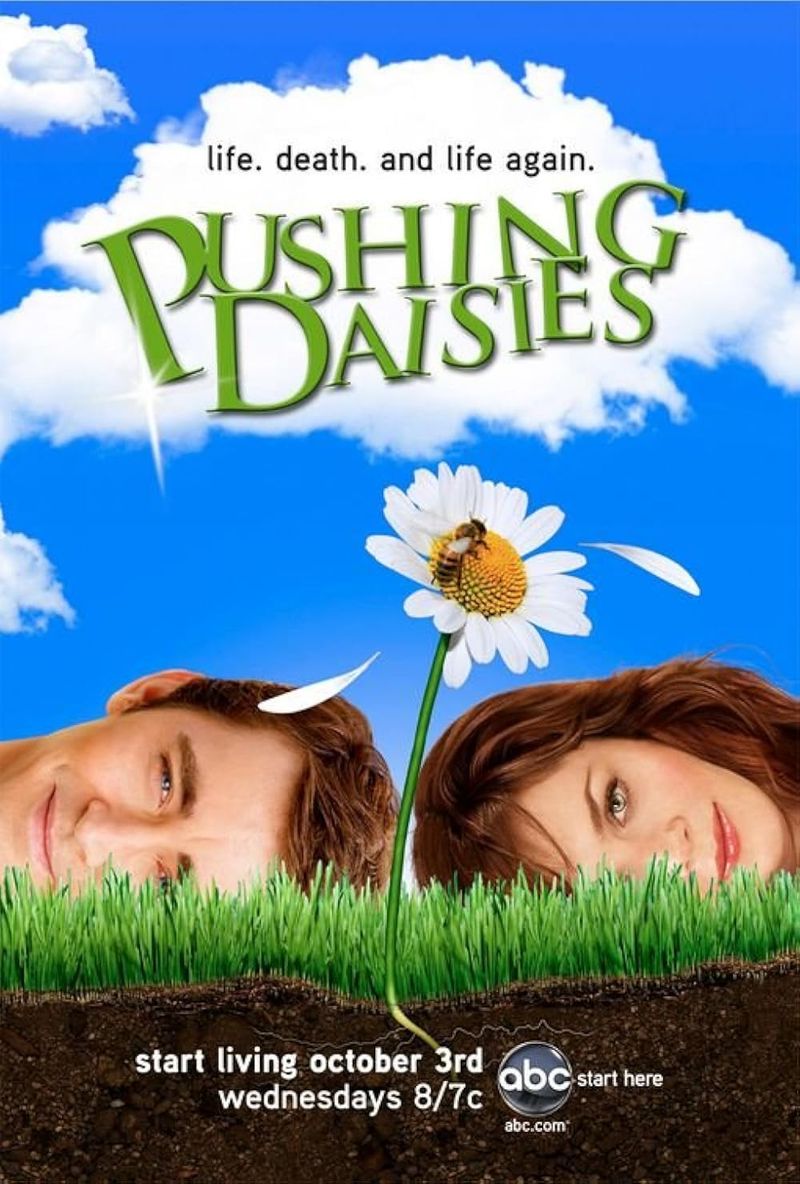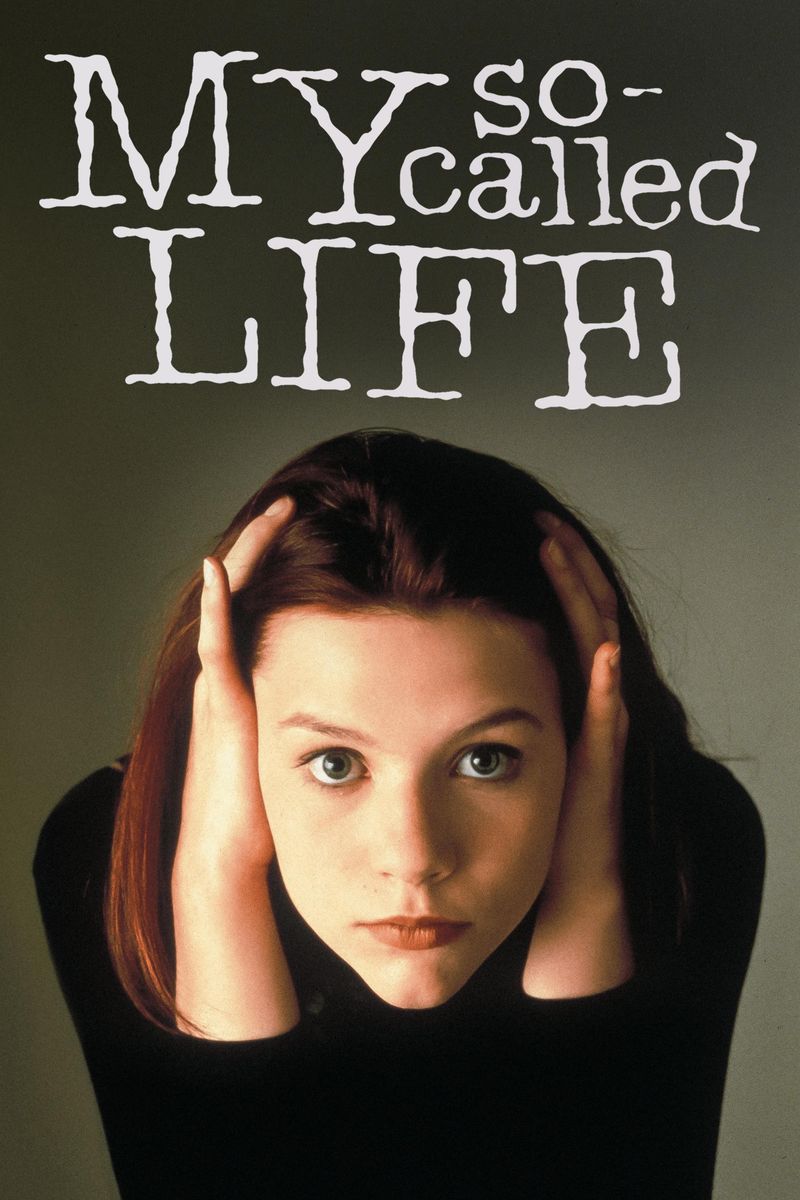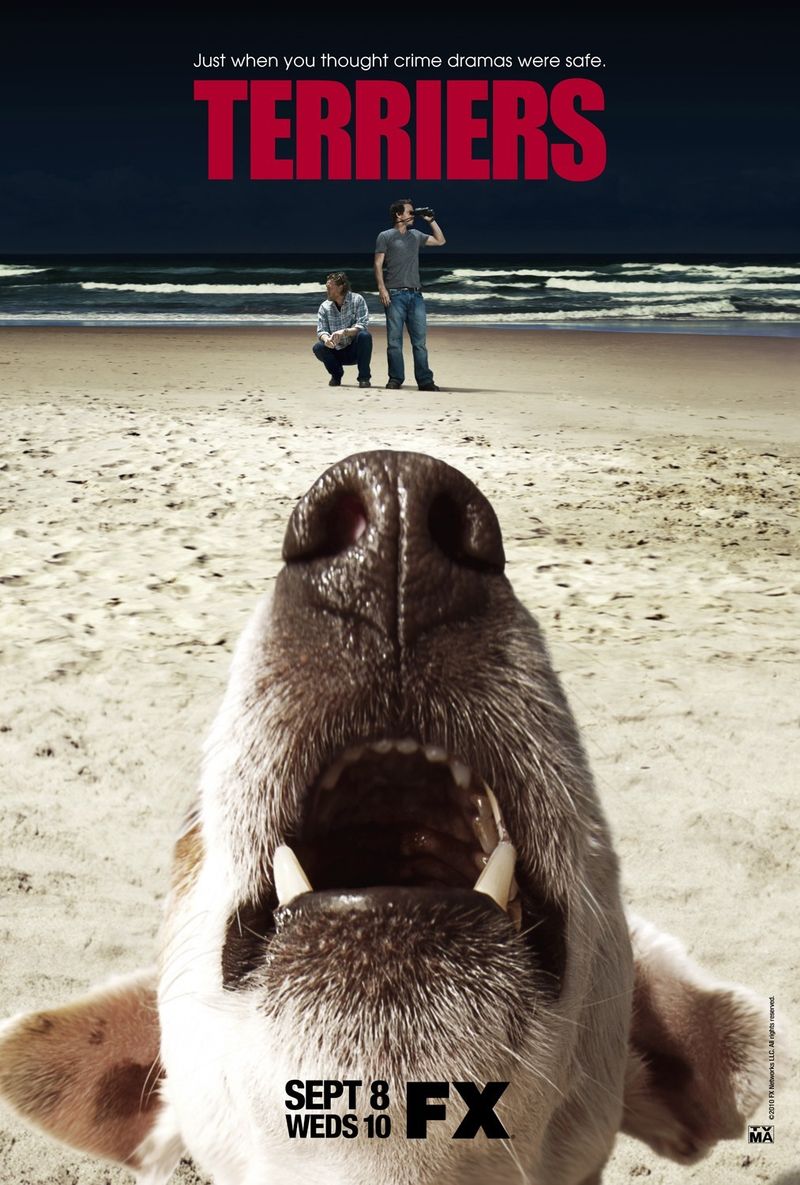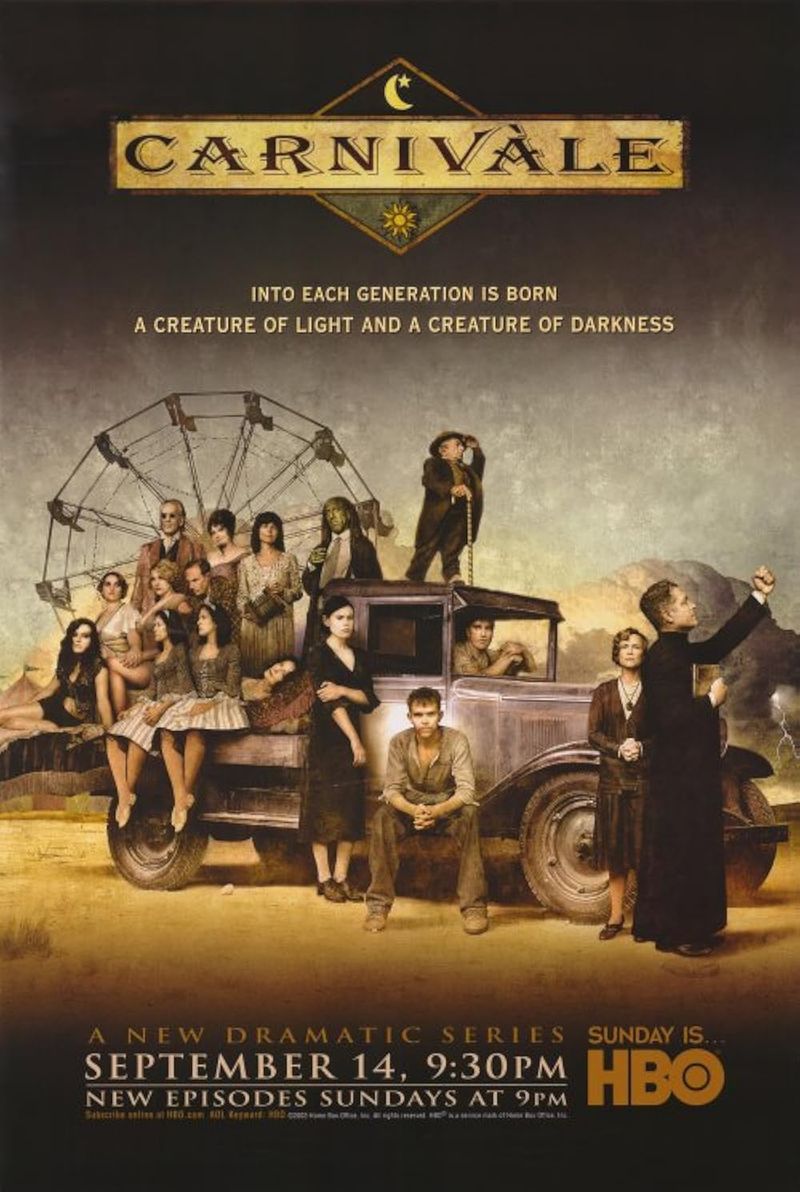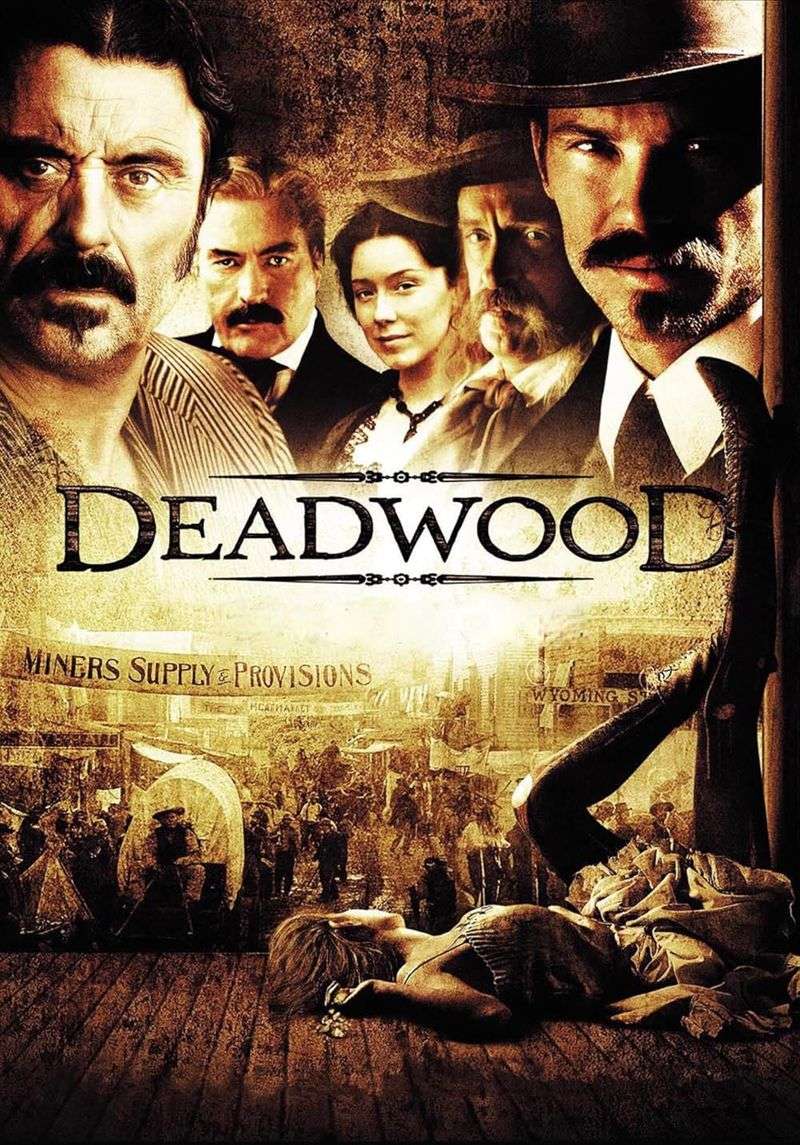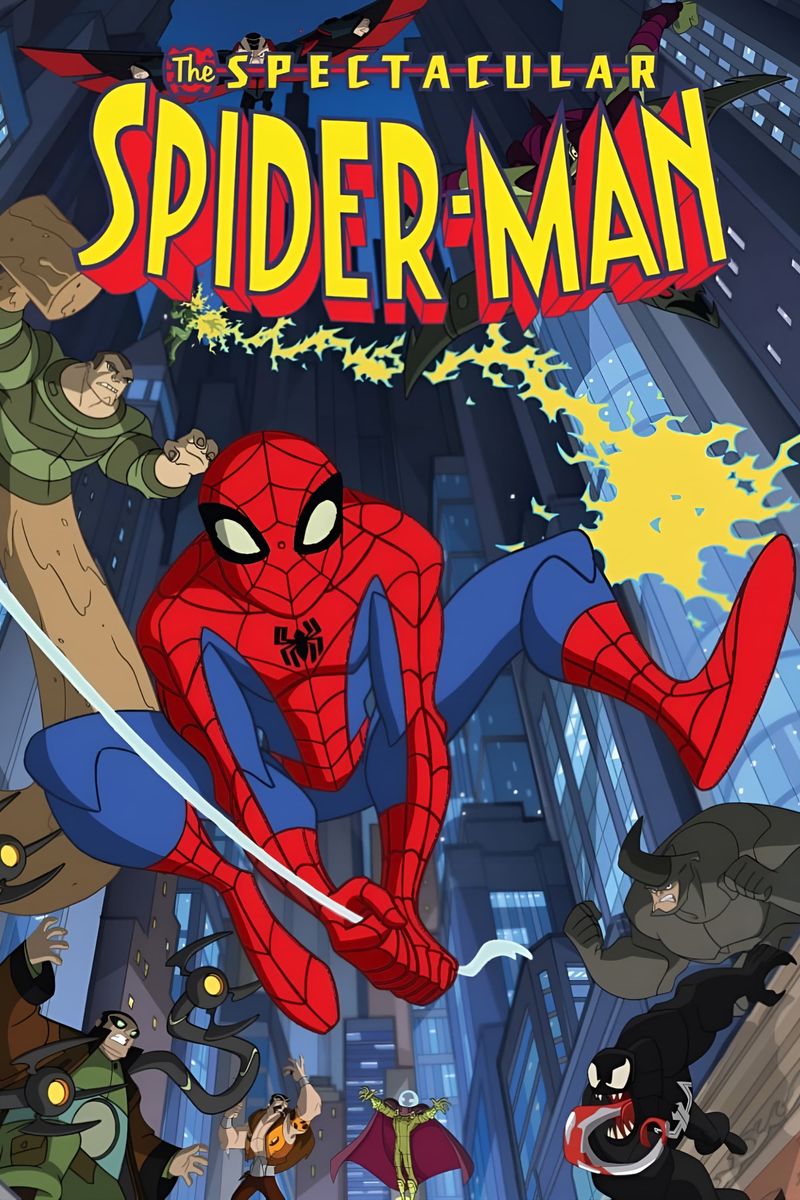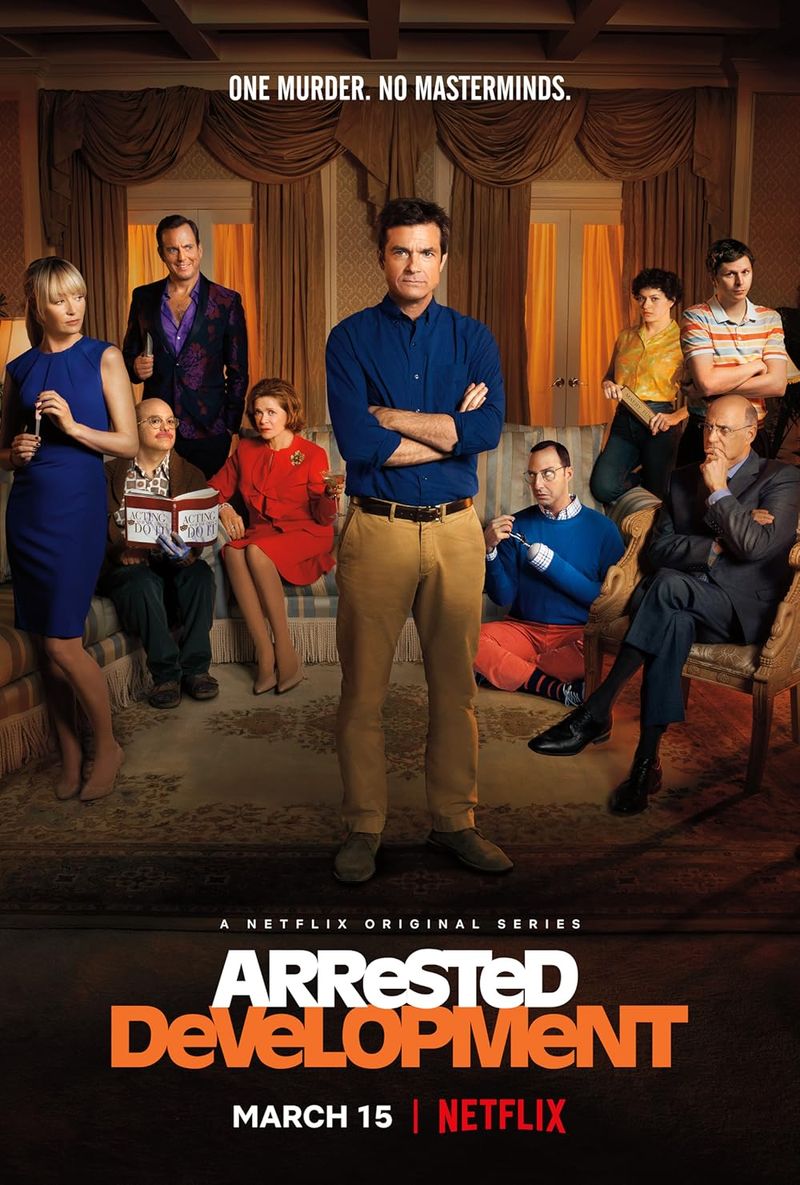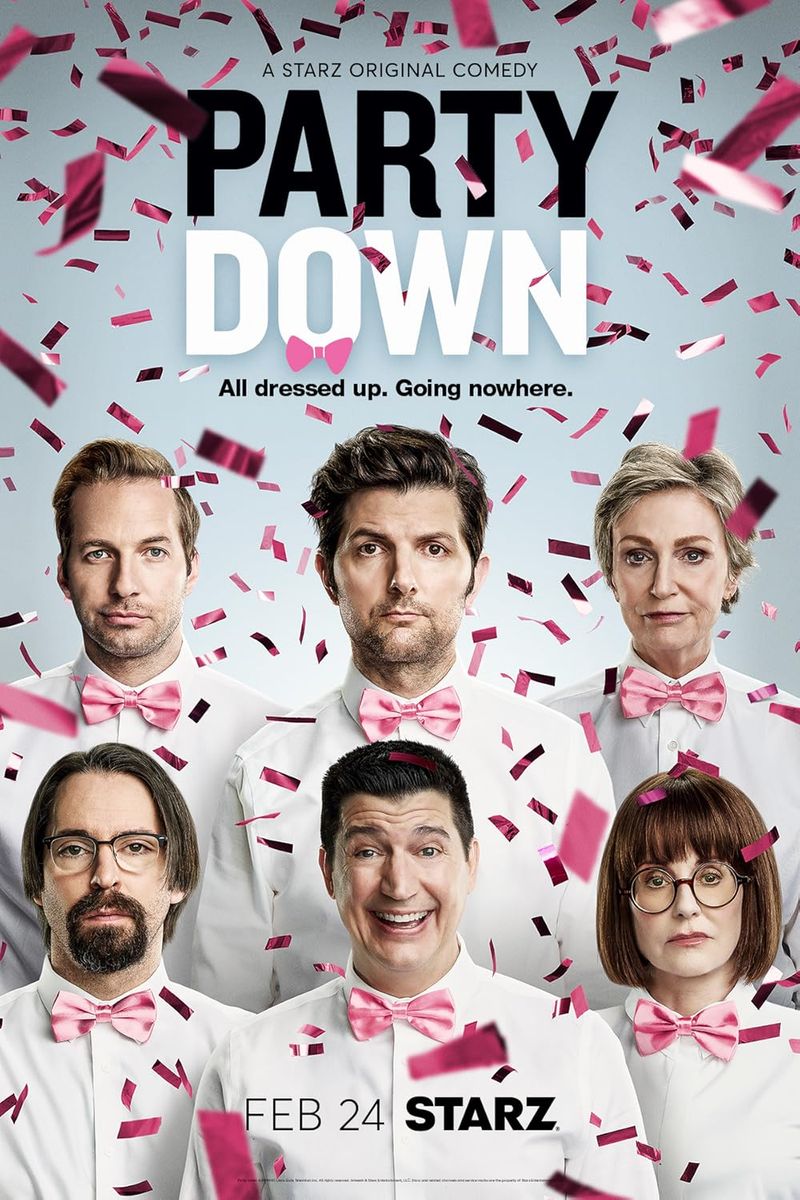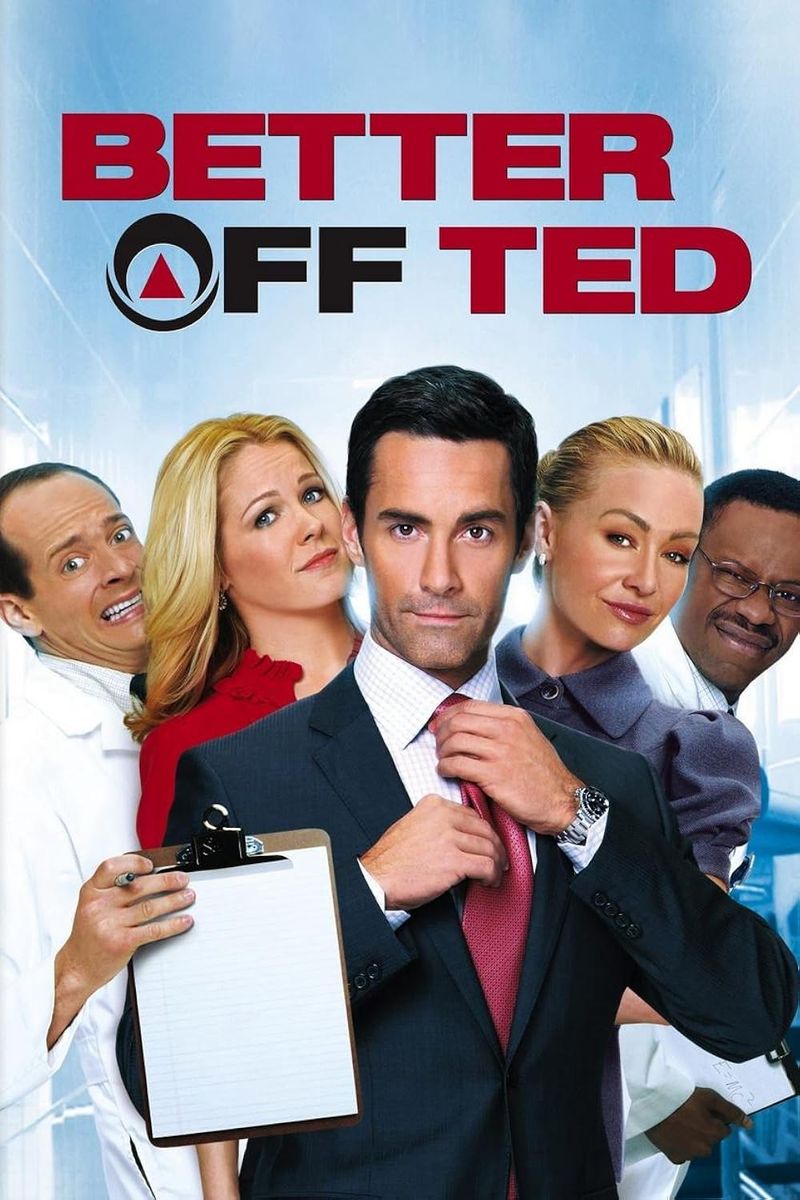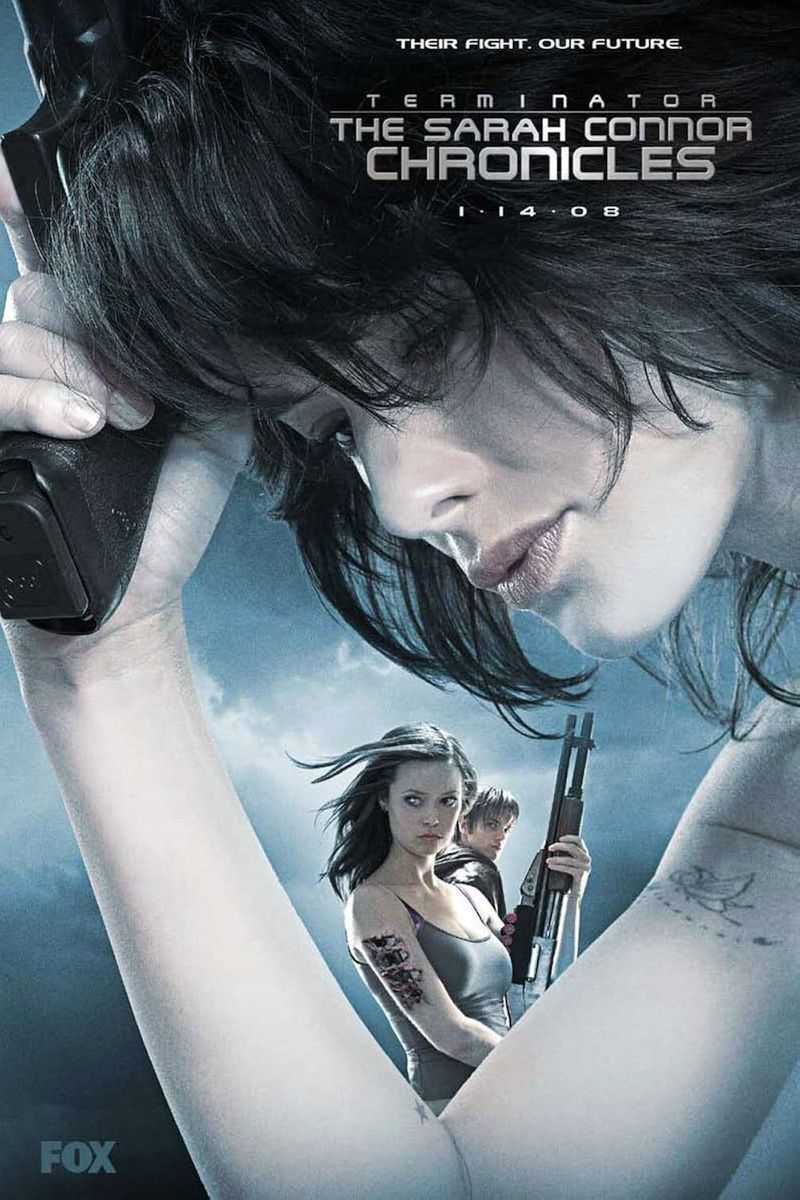TV shows come and go, but some leave us wanting more when networks pull the plug too early. These canceled gems had loyal fans, creative storytelling, and endless potential – yet didn’t get the chance to properly wrap up their stories. From space cowboys to suburban spies, these shows found devoted audiences but couldn’t survive the ratings game.
1. Firefly (2002)
A space western that burned bright before Fox extinguished it after just 14 episodes. Created by Joss Whedon, this cult classic blended sci-fi with frontier grit, following Captain Mal Reynolds and his ragtag crew aboard the Serenity spaceship. Despite critical acclaim and a passionate fanbase that still attends conventions today, poor marketing and inconsistent airing schedules doomed it from the start. The outcry was so loud it eventually spawned a follow-up movie, Serenity, but fans still crave the five-season arc Whedon had planned.
2. Freaks and Geeks (1999-2000)
Before launching the careers of James Franco, Seth Rogen, and Jason Segel, this honest portrayal of high school life in the 1980s lasted just 18 episodes. Creator Paul Feig captured the awkward reality of teenage existence through the eyes of Lindsay Weir and her younger brother Sam. NBC bounced it around different time slots, making it hard for viewers to find. The finale never aired during its original run – a shame considering how perfectly the show balanced comedy with heartfelt moments about growing up. Its influence on modern coming-of-age stories can’t be overstated.
3. Pushing Daisies (2007-2009)
Imagine having the power to bring the dead back to life with a single touch – but a second touch means they’re gone forever. That’s the premise behind Bryan Fuller’s vibrant, whimsical series starring Lee Pace as pie-maker Ned. Visually stunning with a fairy-tale quality, the show’s saturated colors and quirky narration created a world unlike anything else on television. The 2007 writers’ strike cut its first season to just nine episodes, and ABC canceled it during season two. Fans were left hanging about Ned and his childhood sweetheart Chuck, whom he could never touch.
4. My So-Called Life (1994-1995)
Claire Danes starred as angsty teenager Angela Chase in this groundbreaking drama that lasted just 19 episodes. The show tackled real issues like homophobia, drug use, and teen sexuality with remarkable honesty for mid-90s network television. ABC pulled the plug despite critical acclaim, citing low ratings. The series launched Danes’ career and featured a young Jared Leto as the dreamboat Jordan Catalano. Its influence extends far beyond its brief run – without it, we might never have gotten shows like Friday Night Lights or Freaks and Geeks. The finale left Angela torn between bad boy Jordan and loyal friend Brian, a cliffhanger we’ll never see resolved.
5. Terriers (2010)
FX’s criminally overlooked buddy detective series starred Donal Logue and Michael Raymond-James as unlicensed private investigators in San Diego. The show balanced gritty cases with the personal struggles of ex-cop Hank Dolworth, battling alcoholism while trying to rebuild his life. Many blame the confusing marketing campaign – featuring an actual terrier dog despite the show having nothing to do with canines – for its quick demise. Critics adored its sharp writing and complex characters, but viewers never found it. The season finale works surprisingly well as a series ender, but fans still wonder what might have been for this perfect blend of drama and dark humor.
6. Carnivàle (2003-2005)
HBO’s depression-era supernatural drama about a traveling carnival was ambitious television before Game of Thrones made epic TV common. Set against the Dust Bowl, it followed Ben Hawkins, a young man with healing powers, and Brother Justin, a preacher with dark abilities. Creator Daniel Knauf planned a six-season arc exploring the eternal battle between good and evil. HBO canceled it after two seasons, citing high production costs and modest viewership. The series ended with major plotlines unresolved and questions unanswered. Its atmospheric cinematography, period detail, and complex mythology make it a fascinating artifact of early 2000s prestige television.
7. Deadwood (2004-2006)
David Milch’s profane Western masterpiece recreated the lawless South Dakota mining town with Shakespearean dialogue and unforgettable characters. Ian McShane’s Al Swearengen ranks among TV’s greatest antiheroes, a ruthless saloon owner with surprising depth. HBO abruptly ended the series after three seasons, leaving storylines dangling. The show’s elaborate set and large cast made it expensive to produce, but its premature cancellation sparked outrage among critics and fans alike. After years of rumors, HBO finally released a movie in 2019 that offered some closure, but it couldn’t fully replace the planned fourth season that would have shown Deadwood’s historic 1879 fire.
8. The Spectacular Spider-Man (2008-2009)
Before the MCU made superheroes mainstream, this animated series captured everything fans love about the web-slinger. The show balanced Peter Parker’s high school drama with exciting villain battles, all while developing a season-long narrative unusual for Saturday morning cartoons. Corporate politics killed it after just two seasons. When Disney acquired Marvel, Sony retained Spider-Man film rights but lost TV rights, leaving the show caught in the middle. The writers had planned five seasons mapping Peter’s high school years. Many Spider-Man fans consider this the character’s definitive adaptation, perfectly capturing his humor, heart, and the responsibility that comes with great power.
9. Arrested Development (2003-2006, 2013, 2018-2019)
Yes, this comedy about the dysfunctional Bluth family eventually returned, but the original three-season Fox run deserved better. Creator Mitchell Hurwitz packed each episode with layered jokes, running gags, and foreshadowing that rewarded attentive viewers. Despite winning Emmys and critical acclaim, it struggled in the ratings. Fox cut the third season short and canceled it in 2006. While Netflix revived it years later, the magic of the original run proved difficult to recapture with the cast’s busy schedules. The show pioneered the dense, callback-heavy comedy style that influenced everything from Community to The Good Place.
10. Party Down (2009-2010)
Before starring in bigger projects, Adam Scott, Jane Lynch, and Lizzy Caplan worked together as cater-waiters in this Starz comedy about Hollywood dreamers stuck serving the successful. Each episode took place at a different Los Angeles catering event, from sweet sixteen parties to mob weddings. The show’s brilliance came from its perfect balance of cringe comedy and genuine heart. Despite cult status, abysmal ratings led to cancellation after two short seasons. Fan devotion eventually paid off when Starz revived it in 2023, proving sometimes canceled shows do get second chances – though the original run deserved more recognition during its initial broadcast.
11. Better Off Ted (2009-2010)
This workplace satire set at the morally bankrupt Veridian Dynamics corporation was ahead of its time. Starring Jay Harrington as Ted Crisp, the show skewered corporate culture with absurdist humor and fourth-wall breaks long before similar techniques became commonplace. ABC never figured out how to market the show’s unique tone, which blended traditional sitcom elements with surreal office dystopia. Low ratings killed it after just 26 episodes despite critical acclaim. The series tackled topics like workplace racism and corporate ethics with a satirical edge that would fit perfectly in today’s comedy landscape. Its influence can be seen in later shows like Corporate and The Good Place.
12. The Sarah Connor Chronicles (2008-2009)
Set after Terminator 2, this Fox series starred Lena Headey as the iconic Sarah Connor and introduced Summer Glau as a protective Terminator named Cameron. The show expanded the time-travel mythology while focusing on the human drama of preparing for an apocalyptic future. Despite strong performances and creative storytelling, it struggled against competition and budget constraints. Fox canceled it on a major cliffhanger after two seasons, with John Connor transported to a future where nobody recognized him. Thomas Dekker’s portrayal of teenage John Connor added depth to the character, showing his evolution into the resistance leader while dealing with the burden of humanity’s fate.
